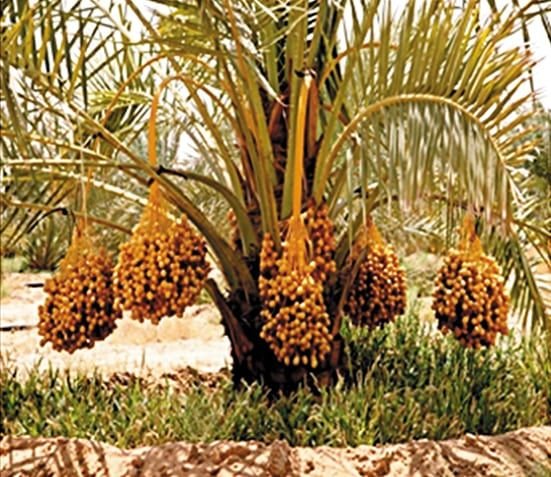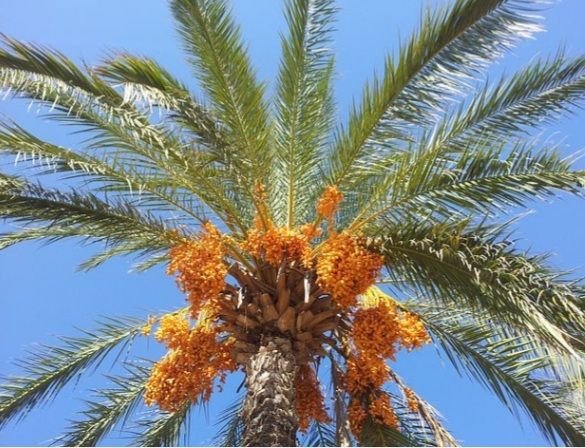In The Name of Allah, The Most Merciful, The Bestower of Mercy.
Allah [The Exalted] said:
فَأَعۡرِضۡ عَن مَّن تَوَلَّىٰ عَن ذِكۡرِنَا وَلَمۡ يُرِدۡ إِلَّا ٱلۡحَيَوٰةَ ٱلدُّنۡيَا
ذَٲلِكَ مَبۡلَغُهُم مِّنَ ٱلۡعِلۡمِۚ إِنَّ رَبَّكَ هُوَ أَعۡلَمُ بِمَن ضَلَّ عَن سَبِيلِهِۦ وَهُوَ أَعۡلَمُ بِمَنِ ٱهۡتَدَىٰ
Therefore withdraw (O Muhammad) from him who turns away from Our Reminder (this Qur’an) and desires nothing but the life of this world. That is what they could reach of knowledge. Verily, your Lord it is He Who knows best him who goes astray from His Path, and He knows best him who receives guidance. [Surah An-Najm. Aayaat 29-30]
When it is the case that this is the abiding behaviour of these polytheists – that they do not have any aim to follow the truth; instead their only aim and intent is that which their souls desire, thus, Allah [The Exalted] commanded His Messenger [peace and blessings of Allah be upon him] to turn away from the one who has turned away from Allah’s Reminder- the Wise Reminder, the Great Qur’aan and the Noble News. They turn away from the beneficial subject matters and do not want except the worldly life, and this is the beginning and end of their desire. It is well known that a servant of Allah does not act except for something he wants, so their deeds are limited to the world, its pleasures and desires. This is where their knowledge stops and its purpose. As for those who believe in the Hereafter- those who testify to the truthfulness of it, the people of sound understanding and sound intellect, their utmost concern and desire is the home of the afterlife. Their sciences are the most virtuous and the loftiest, and that is knowledge taken from the Qur’an and the Sunnah of Allah’s Messenger. Allah knows who deserves guidance and guides him; and the one who is not deserving of it, he is left to himself and forsaken, thus, he deviates from the path of Allah. And due this due Allah said:
إِنَّ رَبَّكَ هُوَ أَعۡلَمُ بِمَن ضَلَّ عَن سَبِيلِهِۦ وَهُوَ أَعۡلَمُ بِمَنِ ٱهۡتَدَىٰ
Verily, your Lord it is He Who knows best him who goes astray from His Path, and He knows best him who receives guidance – Meaning, Allaah [The Exalted] places blessings exactly where it should be. (1)
Allah (The Most High) informed us that the believer amongst the people of Pharaoh said:
يَـٰقَوۡمِ إِنَّمَا هَـٰذِهِ ٱلۡحَيَوٰةُ ٱلدُّنۡيَا مَتَـٰعٌ۬ وَإِنَّ ٱلۡأَخِرَةَ هِىَ دَارُ ٱلۡقَرَارِ
O my people! Truly, this life of the world is nothing but a (quick passing) enjoyment, and verily, the Hereafter that is the home that will remain forever”. [Surah Ghaafir. Verse 39]
Mujahid [may Allaah have mercy upon him] narrated that Abdullah Ibn Umar [may Allaah have mercy upon him and his father] said: Allah’s Messenger [peace and blessings of Allah be upon him] took hold of my shoulder and said, “Be in this world as if you were a stranger or a traveler”. The sub narrator added: Ibn Umar Used to say, “If you survive till the evening, do not expect to be alive in the morning, and if you survive till the morning, do not expect to be alive in the evening, and take from your health for your sickness, and (take) from your life for your death”. (2)
The Muslim is like a stranger in this worldly life; the stranger is one residing in a country other than his country. The worldly life is not the Muslim’s permanent place of residence; instead the Muslim’s permanent place of residence is paradise. He is in this worldly life to work for entry into Paradise. He takes what is needed from this world to aid him work for entry into paradise.
The Muslim is like a traveler in this worldly life: The traveler takes rest during his journey and then carries on travelling. He does not reside permanently in that place he stopped to take a rest. In the life of this world the Muslim is that traveler. In reality he is not a permanent resident in the worldly life because his time in it is very little. His nights and days take him towards the afterlife.
What is befitting the Muslim with regards to the days, nights, and his health etc! If you reach the morning do not delay good deeds till in the evening because it maybe that you will not reach the evening. If you reach the evening do not delay good deeds till the morning because it maybe that you will not reach the morning. Do not delay repentance and righteous deeds till another time.
As long as a person is in a state of good health and wellbeing, he is able to perform fasting, the night prayer etc; but when he becomes sick he is not able to perform fasting, the night prayer etc. Therefore, as long as Allaah has given you good health, then hasten towards righteous actions because a time will come in which you will be unable to perform them-either due to illness, old age, or senility. Prepare for death and what is to come after it. Allaah gave you this life in order that you busy yourself with what will benefit you in the afterlife. So do not spend your life in play and jest. (3)
Imam As-Sadi [may Allah have mercy upon him] said: The sensible person is in a position to have the Baaqiyaat As-Saalihaat as provision [i.e. the good righteous deeds that last and are better in the sight of Allah for reward and better in respect of hope in the Hereafter] together with his share in the worldly life with ease- by seeking aid in going out in the morning and midday and something of the night time. This is the foundation upon which he places his worldly affairs and the means to [accomplishing them]. And even when such [affairs] come to him late at night, he would pray and seek aid from his Lord and asks for that which brings about goodness in his religious and Worldly affairs.
He begins his day with good – recitation of the Qur’aan and acts of worship- to which one devotes himself in the morning; performs the five daily prayers in their earliest times and that which Allah makes easy for him to perform of good deeds, such as (optional) prayer, recitation of the Qur’an, remembrance of Allah, seeking knowledge and other than that. He engages his tongue in the Remembrance of Allah and in seeking forgiveness.
He pursues the means by way of which one seeks his livelihood such as trade, production of goods, farming and what is similar to them, whilst seeking the aid of his Lord in that. He suffices himself with the permissible means and turns away from that which Allaah has made unlawful. The intent behind this is to fulfil the individual obligations; to be (upon) self-sufficiency and having little or no need of the creation. If he does this or something closer to it, the result will be goodness and he will gain abundant reward [for the afterlife]. Also he does not forget his [lawful] share in the worldly life and it may be that Allah will bless him with contentment, which is true richness by way of which a good life is attained.(4)
The Prophet [peace and blessings of Allah be upon him] said: “What is the world to me? What am I to the world? Verily, the example of this world and myself is that of a rider who seeks shade under a tree, then he moves on and leaves it behind”. [Reported by Imaam Ahmad 3701 and others]
The Prophet [peace and blessings of Allaah be upon him] said, “What is the example of this worldly life in comparison to the Hereafter other than one of you dipping his finger in the sea? Let him see what he brings forth”. [Reported by Imaam Muslim 2858]
Allah [The Most High] said:
نَّمَا مَثَلُ ٱلۡحَيَوٰةِ ٱلدُّنۡيَا كَمَآءٍ أَنزَلۡنَـٰهُ مِنَ ٱلسَّمَآءِ فَٱخۡتَلَطَ بِهِۦ نَبَاتُ ٱلۡأَرۡضِ مِمَّا يَأۡكُلُ ٱلنَّاسُ وَٱلۡأَنۡعَـٰمُ حَتَّىٰٓ إِذَآ أَخَذَتِ ٱلۡأَرۡضُ زُخۡرُفَهَا وَٱزَّيَّنَتۡ وَظَنَّ أَهۡلُهَآ أَنَّہُمۡ قَـٰدِرُونَ عَلَيۡہَآ أَتَٮٰهَآ أَمۡرُنَا لَيۡلاً أَوۡ نَہَارً۬ا فَجَعَلۡنَـٰهَا حَصِيدً۬ا كَأَن لَّمۡ تَغۡنَ بِٱلۡأَمۡسِۚ كَذَٲلِكَ نُفَصِّلُ ٱلۡأَيَـٰتِ لِقَوۡمٍ۬ يَتَفَڪَّرُونَ
وَٱللَّهُ يَدۡعُوٓاْ إِلَىٰ دَارِ ٱلسَّلَـٰمِ وَيَہۡدِى مَن يَشَآءُ إِلَىٰ صِرَٲطٍ۬ مُّسۡتَقِيمٍ۬
Verily the likeness of (this) worldly life is as the water (rain) which We send down from the sky, so by it arises the intermingled produce of the earth of which men and cattle eat until when the earth is clad with its adornments and is beautified, and its people think that they have all the powers of disposal over it, Our Command reaches it by night or by day and We make it like a clean-mown harvest, as if it had not flourished yesterday! Thus do We explain the Ayat (proofs, evidences, verses, lessons, signs, revelations, laws, etc.) in detail for the people who reflect. Allah calls to the home of peace (i.e. Paradise, by accepting Allah’s religion of Islamic Monotheism and by doing righteous good deeds and abstaining from polytheism and evil deeds) and guides whom He wills to a Straight Path.[Yunus. 24-25]
Allah [The Most High] said:
وَٱضۡرِبۡ لَهُم مَّثَلَ ٱلۡحَيَوٰةِ ٱلدُّنۡيَا كَمَآءٍ أَنزَلۡنَـٰهُ مِنَ ٱلسَّمَآءِ فَٱخۡتَلَطَ بِهِۦ نَبَاتُ ٱلۡأَرۡضِ فَأَصۡبَحَ هَشِيمً۬ا تَذۡرُوهُ ٱلرِّيَـٰحُۗ وَكَانَ ٱللَّهُ عَلَىٰ كُلِّ شَىۡءٍ۬ مُّقۡتَدِرًا
ٱلۡمَالُ وَٱلۡبَنُونَ زِينَةُ ٱلۡحَيَوٰةِ ٱلدُّنۡيَاۖ وَٱلۡبَـٰقِيَـٰتُ ٱلصَّـٰلِحَـٰتُ خَيۡرٌ عِندَ رَبِّكَ ثَوَابً۬ا وَخَيۡرٌ أَمَلاً۬
And put forward to them the example of the life of this world, it is like the water (rain) which We send down from the sky, and the vegetation of the earth mingles with it, and becomes fresh and green. But (later) it becomes dry and broken pieces, which the winds scatter. And Allah is Able to do everything. Wealth and children are the adornment of the life of this world. But the good righteous deeds (five compulsory prayers, deeds of Allah’s obedience, good and nice talk, remembrance of Allah with glorification, praises and thanks, etc.), that last, are better with your Lord for rewards and better in respect of hope. [Al-Kahf. 45-46]
Allah [The Most High] said:
ٱعۡلَمُوٓاْ أَنَّمَا ٱلۡحَيَوٰةُ ٱلدُّنۡيَا لَعِبٌ۬ وَلَهۡوٌ۬ وَزِينَةٌ۬ وَتَفَاخُرُۢ بَيۡنَكُمۡ وَتَكَاثُرٌ۬ فِى ٱلۡأَمۡوَٲلِ وَٱلۡأَوۡلَـٰدِۖ كَمَثَلِ غَيۡثٍ أَعۡجَبَ ٱلۡكُفَّارَ نَبَاتُهُ ۥ ثُمَّ يَہِيجُ فَتَرَٮٰهُ مُصۡفَرًّ۬ا ثُمَّ يَكُونُ حُطَـٰمً۬اۖ وَفِى ٱلۡأَخِرَةِ عَذَابٌ۬ شَدِيدٌ۬ وَمَغۡفِرَةٌ۬ مِّنَ ٱللَّهِ وَرِضۡوَٲنٌ۬ۚ وَمَا ٱلۡحَيَوٰةُ ٱلدُّنۡيَآ إِلَّا مَتَـٰعُ ٱلۡغُرُورِ
Know that the life of this world is only play and amusement, pomp and mutual boasting among you, and rivalry in respect of wealth and children, as the likeness of vegetation after rain, thereof the growth is pleasing to the tiller; afterwards it dries up and you see it turning yellow; then it becomes straw. But in the Hereafter (there is) a severe torment (for the disbelievers, evil-doers), and (there is) Forgiveness from Allah and (His) Good Pleasure (for the believers, good-doers), whereas the life of this world is only a deceiving enjoyment. [Al-Hadeed. 57]
Allah [The Most High] said:
زُيِّنَ لِلنَّاسِ حُبُّ ٱلشَّهَوَٲتِ مِنَ ٱلنِّسَآءِ وَٱلۡبَنِينَ وَٱلۡقَنَـٰطِيرِ ٱلۡمُقَنطَرَةِ مِنَ ٱلذَّهَبِ وَٱلۡفِضَّةِ وَٱلۡخَيۡلِ ٱلۡمُسَوَّمَةِ وَٱلۡأَنۡعَـٰمِ وَٱلۡحَرۡثِۗ ذَٲلِكَ مَتَـٰعُ ٱلۡحَيَوٰةِ ٱلدُّنۡيَاۖ وَٱللَّهُ عِندَهُ ۥ حُسۡنُ ٱلۡمَـَٔابِ
قُلۡ أَؤُنَبِّئُكُم بِخَيۡرٍ۬ مِّن ذَٲلِڪُمۡۚ لِلَّذِينَ ٱتَّقَوۡاْ عِندَ رَبِّهِمۡ جَنَّـٰتٌ۬ تَجۡرِى مِن تَحۡتِهَا ٱلۡأَنۡهَـٰرُ خَـٰلِدِينَ فِيهَا وَأَزۡوَٲجٌ۬ مُّطَهَّرَةٌ۬ وَرِضۡوَٲنٌ۬ مِّنَ ٱللَّهِۗ وَٱللَّهُ بَصِيرُۢ بِٱلۡعِبَادِ
Beautified for men is the love of things they covet; women, children, much of gold and silver (wealth), branded beautiful horses, cattle and well-tilled land. This is the pleasure of the present world’s life; but Allah has the excellent return (Paradise with flowing rivers, etc.) with Him. Say: “Shall I inform you of things far better than those? For Al-Muttaqun (the pious) there are Gardens (Paradise) with their Lord, underneath which rivers flow. Therein (is their) eternal (home) and Azwajun Mutahharatun (purified mates or wives) [i.e. they will have no menses, urine, or stool, etc.], And Allah will be pleased with them. And Allah is All-Seer of the (His) slaves”. [Aal Imraan. 14-15]
Allah [The Most High] said:
وَفَرِحُواْ بِٱلۡحَيَوٰةِ ٱلدُّنۡيَا وَمَا ٱلۡحَيَوٰةُ ٱلدُّنۡيَا فِى ٱلۡأَخِرَةِ إِلَّا مَتَـٰعٌ۬
And they rejoice in the life of the world, whereas the life of this world as compared with the Hereafter is but a brief passing enjoyment. [Ar-Rad. 26]
Allah [The Most High] said:
إِنَّ ٱلَّذِينَ لَا يَرۡجُونَ لِقَآءَنَا وَرَضُواْ بِٱلۡحَيَوٰةِ ٱلدُّنۡيَا وَٱطۡمَأَنُّواْ بِہَا وَٱلَّذِينَ هُمۡ عَنۡ ءَايَـٰتِنَا غَـٰفِلُونَ
أُوْلَـٰٓٮِٕكَ مَأۡوَٮٰهُمُ ٱلنَّارُ بِمَا ڪَانُواْ يَكۡسِبُونَ
Verily, those who hope not for their meeting with Us, but are pleased and satisfied with the life of the present world, and those who are heedless of Our Ayat (proofs, evidences, verses, lessons, signs, revelations, etc.); Those, their abode will be the Fire, because of what they used to earn. [Yunus. 7-8]
Allah [The Most High] said:
يَـٰٓأَيُّهَا ٱلَّذِينَ ءَامَنُواْ مَا لَكُمۡ إِذَا قِيلَ لَكُمُ ٱنفِرُواْ فِى سَبِيلِ ٱللَّهِ ٱثَّاقَلۡتُمۡ إِلَى ٱلۡأَرۡضِۚ أَرَضِيتُم بِٱلۡحَيَوٰةِ ٱلدُّنۡيَا مِنَ ٱلۡأَخِرَةِۚ فَمَا مَتَـٰعُ ٱلۡحَيَوٰةِ ٱلدُّنۡيَا فِى ٱلۡأَخِرَةِ إِلَّا قَلِيلٌ
O you who believe! What is the matter with you, that when you are asked to march forth in the Cause of Allah (i.e. Jihad) you cling heavily to the earth? Are you pleased with the life of this world rather than the Hereafter? But little is the enjoyment of the life of this world as compared with the Hereafter. [At-Tawbah. 38]
Allah [The Most High] said:
أَفَرَءَيۡتَ إِن مَّتَّعۡنَـٰهُمۡ سِنِينَ
ثُمَّ جَآءَهُم مَّا كَانُواْ يُوعَدُونَ
مَآ أَغۡنَىٰ عَنۡہُم مَّا كَانُواْ يُمَتَّعُونَ
Tell Me, if We do let them enjoy for years; and afterwards comes to them that (punishment) which they had been promised! All that with which they used to enjoy shall not avail them. [Surah Ash-Shu’araa. Verses 205-207]
Allah [The Most High] said:
وَيَوۡمَ يَحۡشُرُهُمۡ كَأَن لَّمۡ يَلۡبَثُوٓاْ إِلَّا سَاعَةً۬ مِّنَ ٱلنَّہَارِ يَتَعَارَفُونَ بَيۡنَہُمۡۚ
And on the Day when He shall gather (resurrect) them together, (it will be) as if they had not stayed (in the life of this world and graves, etc.) but an hour of a day. They will recognise each other. [Surah Yunus. Verse 45]
Allah [The Most High] said:
كَأَنَّہُمۡ يَوۡمَ يَرَوۡنَ مَا يُوعَدُونَ لَمۡ يَلۡبَثُوٓاْ إِلَّا سَاعَةً۬ مِّن نَّہَارِۭۚ بَلَـٰغٌ۬ۚ فَهَلۡ يُهۡلَكُ إِلَّا ٱلۡقَوۡمُ ٱلۡفَـٰسِقُونَ
On the Day when they will see that (torment) with which they are promised (i.e. threatened, it will be) as if they had not stayed more than an hour in a single day. (O mankind! This Qur’an is sufficient as) a clear Message (or proclamation to save yourself from destruction). But shall any be destroyed except the people who are Al-Fasiqun (the rebellious, disobedient to Allah)]. [Al-Ahqaaf. 35]
Allah [The Most High] said:
يَسۡـٴَـلُونَكَ عَنِ ٱلسَّاعَةِ أَيَّانَ مُرۡسَٮٰهَا
فِيمَ أَنتَ مِن ذِكۡرَٮٰهَآ
إِلَىٰ رَبِّكَ مُنتَہَٮٰهَآ
إِنَّمَآ أَنتَ مُنذِرُ مَن يَخۡشَٮٰهَا
كَأَنَّہُمۡ يَوۡمَ يَرَوۡنَہَا لَمۡ يَلۡبَثُوٓاْ إِلَّا عَشِيَّةً أَوۡ ضُحَٮٰهَا
They ask you (O Muhammad) about the Hour, – when will be its appointed time? You have no knowledge to say anything about it; To your Lord belongs (the knowledge of) the term thereof? You (O Muhammad) are only a warner for those who fear it; The Day they see it, (it will be) as if they had not tarried (in this world) except an afternoon or a morning. [An-Naazi’aat. 42-46]
Allah [The Most High] said:
وَيَوۡمَ تَقُومُ ٱلسَّاعَةُ يُقۡسِمُ ٱلۡمُجۡرِمُونَ مَا لَبِثُواْ غَيۡرَ سَاعَةٍ۬ۚ
And on the Day that the Hour will be established, the Mujrimun (criminals, disbelievers, polytheists, sinners, etc.) will swear that they stayed not but an hour. [Ar-Rum. 55]
Allaah [The Most High] said:
قَـٰلَ كَمۡ لَبِثۡتُمۡ فِى ٱلۡأَرۡضِ عَدَدَ سِنِينَ
قَالُواْ لَبِثۡنَا يَوۡمًا أَوۡ بَعۡضَ يَوۡمٍ۬ فَسۡـَٔلِ ٱلۡعَآدِّينَ
قَـٰلَ إِن لَّبِثۡتُمۡ إِلَّا قَلِيلاً۬ۖ لَّوۡ أَنَّكُمۡ كُنتُمۡ تَعۡلَمُونَ
He (Allah) will say: “What number of years did you stay on earth?” They will say: “We stayed a day or part of a day. Ask of those who keep account.” He (Allah) will say: “You stayed not but a little, if you had only known! [Al-Mu’minoon. 112-114]
Allah [The Most High] said:
يَوۡمَ يُنفَخُ فِى ٱلصُّورِۚ وَنَحۡشُرُ ٱلۡمُجۡرِمِينَ يَوۡمَٮِٕذٍ۬ زُرۡقً۬ا
يَتَخَـٰفَتُونَ بَيۡنَہُمۡ إِن لَّبِثۡتُمۡ إِلَّا عَشۡرً۬ا
نَّحۡنُ أَعۡلَمُ بِمَا يَقُولُونَ إِذۡ يَقُولُ أَمۡثَلُهُمۡ طَرِيقَةً إِن لَّبِثۡتُمۡ إِلَّا يَوۡمً۬ا
The Day when the Trumpet will be blown (the second blowing): that Day, We shall gather the Mujrimun (criminals, polytheists, sinners, disbelievers in the Oneness of Allah, etc.) Zurqa: (blue or blind eyed with black faces); In whispers will they speak to each other (saying): “You stayed not longer than ten (days).” We know very well what they will say, when the best among them in knowledge and wisdom will say: “You stayed no longer than a day!” [Ta Ha. 102-104]
And Allah’s Aid is sought and upon Him we place our reliance! (5)
[1] Tafseer As-Sadi.
[2]Bukhaari: The Book of Ar-Riqaaq Vol 8: Hadeeth Number: 6416
[3] An Excerpt from ‘Al-Minhatur Rabbaaniyyah Fee sharh al-arba’een of Al-Allaamah Saaleh Al-Fawzaan (may Allaah preserve him) pages 285 287
[4] An Excerpt from Noorul Basaa-ir Wal Albaab Fee Ahkaam Al Ibaadaat, Wal Mu-aamalaat, Wal Huqooq, Wal Aadaab of Imam Abdur Rahmaan As-Sadi. Page: 65.
[5] An Excerpt from Al-Fawaa’id’ page 148-152.










